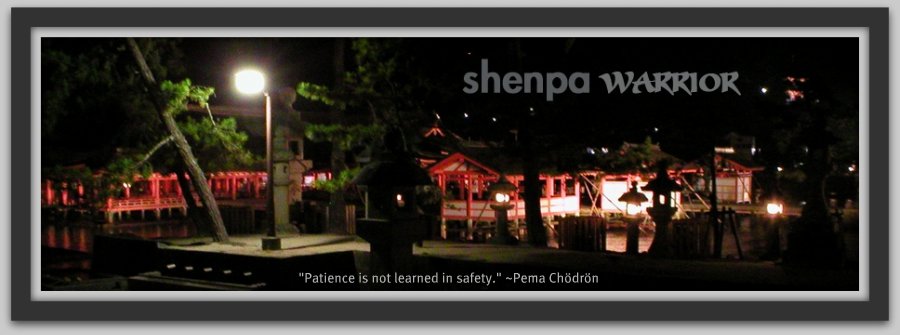“Jesus saw sin as wrong but also was able to see sin as springing from deep and unmet needs on the part of the sinner. This permitted him to condemn the sin without condemning the individual. We can show forth our love for others even when we are called upon to correct them. We need to be able to look deeply enough into the lives of others to see the basic causes for their failures and shortcomings.”
I would like to write more about what I believe `sin´ is, but that will have to wait. For now, I will just say that I believe sin is anything that slows or halts our progression. We all sin, it is part of life. What matters is our ability or effort in continuing on, in repairing relationships, and not giving up on the ultimate task of life, that of personal growth in ourselves and others. I think it is important to reframe the stigma of the word 'sin' into a conceptualization that is something that is a part of our lives, something that we need not loathe ourselves over, but rather rejoice that we have the opportunity to live and love and repair and even grow sometimes even though it can be painful.


I found this comforting.
ReplyDeleteI really like this quote. Where did you find it?
ReplyDeleteSort of off topic, but as a fellow Japanese speaker, you may appreciate this. My friend serving in Japan about 15 years ago was translating Gen. Conf real time for an investigator (english > Japanese; I guess they didn't have the translation at the church). ANyway, Elder Oaks gets up and says "I would like to speak about the difference between sin and transgression."
My friend quietly told the investigator there was no way he could give an accurate translation of what was to come.
AMEN, Adam.
ReplyDeleteI had an experience a few years ago that forever changed my views on repentance, which goes along nicely with what you said- repentance isn't about being punished for our sins. It's about being able to move past the things we do that halt our personal growth.
It's not a crime and punishment sort of thing. I don't think God's laws work that way. It's about healing and growth so that we can become happy, fulfilled people.
I really like the Kimball quote because THAT is exactly why we don't judge other people. If someone is struggling in some way, instead of looking at them and saying, "well, I need to stay away from them, they're doing bad things", we say, "how can I help this person get through this challenge".
Human #4billion - thanks for linking here on your new blog! I can´t wait to read more of your liberal agnostic words of wisdom!
ReplyDeleteJD - here is the entire talk.
As for Japanese, I can barely get the difference between sin and transgression in English, so yeah, that would be near impossible in Japanese. :)
Boy this is so frustrating! I hope my comments get published this time around.
ReplyDeleteI agree with President Kimball - sin does result from a deep seated need that is unmet; however, I would go further. I also really like this statement because it invites compassion from others - which is always a good thing - very insightful!
I believe that sin is a compromise, it is our attempt to fix our unmet needs by relying on the "lesser" good, rather than the "best" good choice possible. We tend to choose the lesser good because it is easier than choosing the best good. In my mind, this is the definition of Original Sin.
I was impressed with something I just read from Nibley’s volume 17. He spoke about the Second Law of Thermodynamics and entropy -- how things go from a higher state to a less ordered. In nature this phenomenon is irreversible. Entropy is the measure of how far this deteriorating process has gone. Sin is like entropy. It is like a car rolling along a road that has kinetic energy and performs work. But mortality and sin, like friction, slows the car down and the ability to progress farther is lost. Such is the human condition and the way of the visible universe. In five billion years our sun will burn up all of its core hydrogen and become a red giant. Any life under the ice of Titan, in the glaciers of Mars or on this earth will be burned to a crisp.
ReplyDeleteBrother Nibley wrote of syntropy, the opposite of entropy. The atonement of Jesus Chirst is syntropy. This is a restorative process and reverses the Second Law of Thermodynamics. Through repentance this process of syntropy becomes effective in our lives as we go from a disordered to an organized state. Everything we see in the universe follows this second law, but Christ is the mediator and author of change who is able to reverse decay, death, and take away our sins. Incredible!
Volume 17 of the Collected Works is available at Benchmark Books. Ask for Chris and tell him George sent you. You can email them and order over the internet,Benchmarkbooks.com.
That is a neat idea from Bro. Nibley. I will have to check that out while I´m on the plane!
ReplyDeleteGreat post, Adam. I agree with the central premise, as well as the focus on compassion it brings.
ReplyDeleteI also agree with the impossibility of translating a talk about the difference between sin and transgression in Japanese. I would have done the exact same thing on my mission.
repentance isn't about being punished for our sins. It's about being able to move past the things we do that halt our personal growth.
ReplyDeleteInteresting, though sin is so many things, at different levels.